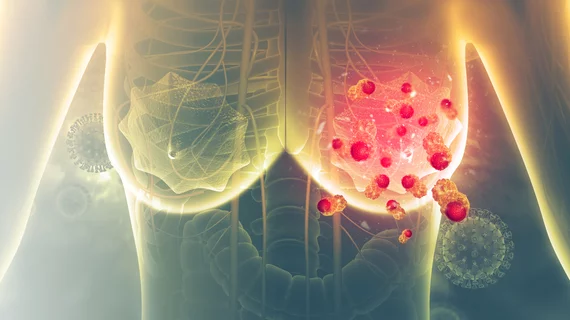RadNet touts AI offshoot’s early success, pinpointing cancer a year earlier than current practice
Outpatient imaging giant RadNet is touting early success through its artificial intelligence subsidiary DeepHealth in a new analysis published Monday.
The Los Angeles-based imaging group reported that its novel mammography algorithm demonstrated higher performance than a group of five full-time radiologists, with an average increase in sensitivity of 14%. And the firm’s scientists believe the tool could help detect disease upward of two years sooner than standard interpretation in some cases, experts wrote in Nature Medicine.
“Our results point to the clinical utility of AI for mammography in facilitating earlier breast cancer detection, as well as an ability to develop AI with similar benefits for other medical imaging applications,” study author Bill Lotter, PhD, chief technology officer and co-founder of DeepHealth, said in a Jan. 11 statement.
Along with specificity, RadNet and its subsidiary also highlighted the technology’s generalizability, with “strong performance” when tested across different clinical sites and populations that were not involved in creating the algorithm. Those involved said they were able to develop the system using a new approach that “mimics how humans often learn by progressively training the AI models on more difficult tasks.”
“By leveraging prior information learned in each successive training stage, this strategy results in AI that detects cancer accurately while also relying less on highly annotated data,” Lotter added.
RadNet first acquired DeepHealth back in March 2020. The Cambridge, Massachusetts-based group said its first AI product is based on the core technology outlined in Monday’s study. It submitted the algorithm for U.S. Food and Drug Administration consideration late last year and hopes to score approval in 2021, according to the announcement.
You can read more of their findings in Nature Medicine here.

